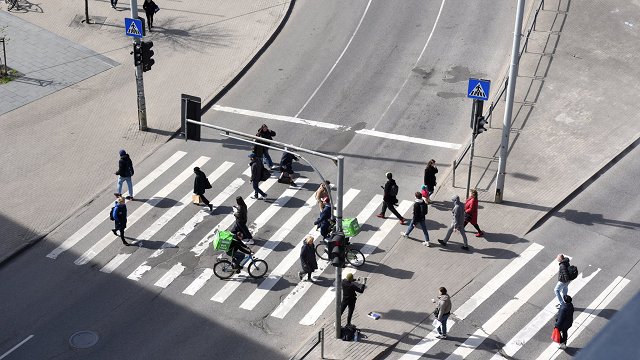Āboliņš said that unemployment remains at a historic low level in Latvia. The increase in unemployment at the end of the year is a common seasonal phenomenon linked to lower activity in construction and agriculture, and since October the number of registered unemployed has also increased by about 4 thousand people. However, not all of the rise in unemployment is related to seasonal factors, as unemployment in Latvia was 0.1% higher in Q4 than a year ago.
Latvia's economy is expected to grow again this year, so there is no reason to worry about a wider increase in unemployment, said the Citadele economist.
According to him, the very active period in Latvia's labor market has now ended after the end of the pandemic, when the economy resumed functioning normally, many companies were looking for employees and there was an acute shortage of them. Over the past year and a half, the number of job advertisements and vacancies has dropped by almost half, and currently, a significantly lower proportion of companies cite staff shortages in surveys as the main factor limiting development.
He said that the bigger challenge for entrepreneurs now is weak demand, especially in industry, trade, and logistics, and with the fall in inflation, corporate finance figures are no longer growing so fast. As a result, last year the unemployment rate rose among people with secondary or unfinished secondary education, while among people with higher or vocational education, unemployment continues to decline.
However, the decrease in labor demand, according to the Bank of Latvia economist Andrejs Migunovs, does not take place everywhere – in the context of decreasing inflation, recovery began in the service sector, so in January the labor force was more pronounced in this sector as a deterrent to entrepreneurship. In addition, despite the decrease in the number of employed persons in the last quarter of 2023, businesses' employment expectations remain close to the level of the previous quarter, which does not indicate that the situation in the Latvian labor market will deteriorate significantly in the future.
This is confirmed by other indicators, such as the dynamics of the number of vacancies in the labor market as a whole, even though labor shortages in construction and industry are a less restrictive factor.
The Citadele economist added that according to his forecasts, unemployment reduction could be very small, and average unemployment in Latvia could be 6.4% this year.
“In the coming years, unemployment in Latvia will certainly continue to decrease due to demographic processes – the number of young people entering the labor market each year is significantly lower than the number of people reaching retirement age each year. The integration of Ukrainian refugees into the labor market has temporarily increased labor supply, but the economically active population is shrinking and we are again facing structural staff shortages in the coming years. This is the main reason why unemployment is not growing at the moment, despite weak growth, which will be difficult to find employees as it resumes,” the Citadele economist said.





























